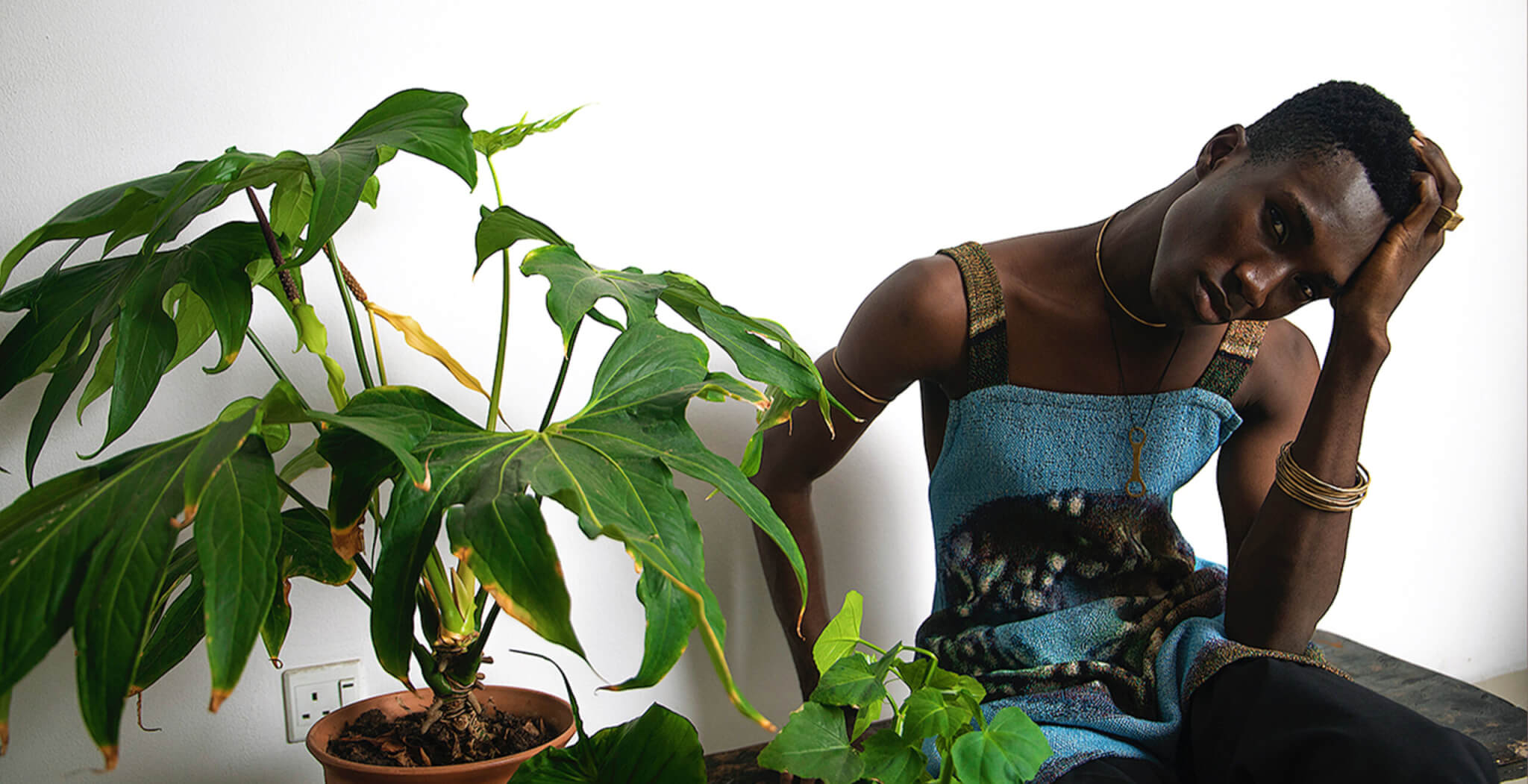Thick Skin, Big Feelings: Apsilon on Identity, Family, and Fighting Back
A powerful line echoes on the first track of Apsilon’s debut album: “In einen Koffer passt kein Leben” – “No life fits into a suitcase.” This lyric serves as a striking metaphor that extends far beyond a simple phrase, refusing to be confined, much like Apsilon himself resists being categorized or simplified.


In his debut album Haut wie Pelz which was released in early october, the Berlin artist takes an introspective approach, weaving together deeply personal narratives with broader social commentary. Through his music, Apsilon transforms his family’s complex history into a nuanced exploration of identity, vulnerability, and human resilience. The album oscillates between critical anger and hopeful lightness, presenting a complex exploration of personal and collective experiences.
Haut wie Pelz is more than just a musical project–it’s a multidimensional narrative that mirrors the artist’s own multifaceted identity. We met for an interview on the set of our cover shoot, to talk about identity, thick skin and growing up in Berlin.


How are you feeling after the album release, your tour and the final performance at Columbiahalle?
It’s been quite a year—turbulent, but rewarding. Since the release, all the stress, pressure, and self-imposed expectations have melted away, transforming into pure joy. I tend to overthink and often imagine the worst-case scenarios, but the final show at Columbiahalle was truly special. Despite the large crowd, it felt intimate, like a living room concert with family.
What does the title Haut wie Pelz (Skin like Fur) mean to you?
The title is very figurative. It reflects the tension between feeling alien in your own skin, developing a resilience to pain—which comes with both advantages and drawbacks—and ultimately finding self-acceptance or seeking acceptance from others.
On the album, Apsilon explores his own family history, intertwining it with a significant chapter of German history. This narrative resonates with the experiences of many other families in Berlin and across Germany. Like his grandparents, who arrived in the 1970s as so-called guest workers from Turkey, these families often faced the difficult decision of leaving their children behind and navigating numerous financial, social, and societal challenges in their new home.
Did this project allow you to view your family history from a new perspective? Has sharing this story publicly changed anything for you and your family?
On one hand, engaging with it more intensively in order to do it justice—whether musically or visually—brings a heightened sense of connection. On the other hand, packaging such emotional experiences into songs, which are then shared and performed repeatedly, can sometimes create a sense of detachment from the original feelings. However, the conversations sparked with my family about the songs and videos have been incredibly meaningful. They’ve not only had an impact on me but have also resonated with others in my family.

Strong backs, showing weakness, and men who cry. The song Baba tackles a topic that remains rarely addressed in public: masculinity, vulnerability, and suppressed emotions.
What does it mean to address themes like masculinity and vulnerability through your music, especially within a rap culture often focused on hyper-masculine imagery?
It wasn’t a deliberate attempt to explore the topic from a societal perspective; instead, it stemmed from something deeply personal that has been on my mind over the past few years. When we performed the song live for the first time, I was struck by the emotional reactions from the audience. It was very moving and reminded me—something that’s easy to forget as an artist—of the power music can have. After the song was written, my brother, my father, and I had several conversations about showing emotions, pain, and sadness, and why it so often feels impossible to do so.
Your music is often labeled as political or socially critical rap. How do you see that? Are there also expectations of you that go hand in hand with this?
When you create meaningful songs, people expect profound topics. Not necessarily extremely political, but with a clear message. We also make songs that convey more of a vibe and emotion, without wanting to limit ourselves. The album contains different stories: musically, aesthetically and thematically. It touches on love, self-discovery, identity, frustration, and human emotions, which are always in a social context because you can’t develop as an individual free from these external influences.
The theme of identity and the search for it appears repeatedly in your songs, such as in Köfte (2022): “It took me 23 years to realize that instead of two, I don’t have a home.”
How did you find your own identity? What was your journey to discovering it?
Whether growing up in the countryside or in a big city, you experience different processes if you have non-German roots in Germany. In the city, the close connection to many others who also didn’t have German roots helped me feel more at home.
At the same time, there were phases when I wanted to separate myself in order to fit in. Exclusion or discrimination often makes people gravitate more strongly toward their parents’ country of origin, which creates space for nationalism. But I realized that this is not the answer–neither here nor there, where nationalism also causes problems.


Did music help you find your identity?
Yes, definitely. Hip-hop, basketball and the community around it had a strong influence on me. They showed me that identity can be based on friendships, music and culture – not on national ideas.
You started writing lyrics very early on, long before you ever shared them publicly. Was there a specific turning point in your life that led you to publish them?
It happened during the pandemic. Despite the difficulties of that time, I suddenly had a lot of time for myself. It was then that I found the courage to share my lyrics with the world. I decided to finish three songs instead of just collecting ideas, lyrics, or fragments. That was the moment I began working in the studio and recording my music.
Do you find it easy to always be authentic?
Sometimes, you exaggerate a feeling artistically in order to turn it into a song. I’m not sure if you can always feel so much and so intensely that you could constantly make music about it. On the other hand, you will never unfold your whole inner self in the music. Whether the emotion is amplified or toned down in a song, what matters to me in the end is being able to say, “This is me.”
You’ve already ticked a lot of things off your list–what’s next?
There are still a few artists I’d love to collaborate with. I am very grateful, and sometimes I am amazed at what I have achieved. It doesn’t always have to get bigger. What matters more is continuing to create music that we truly stand behind. Of course, there’s sometimes pressure to maintain the level, but I’ve had that feeling before. Our aim is to open a new chapter and keep evolving both artistically and thematically.
How do you stay hopeful in difficult times?
Your environment plays a huge role. On your own, the negative impressions from the world can easily lead to feelings of hopelessness, hatred against yourself or the world. But finding a way to face these challenges alongside others makes it more bearable and creates space for beautiful moments in life. I’m grateful for my environment–my family, friends, and the collective that supports me and gives me strength, both in music and in life. Together, we can stand up for a different world.
A powerful debut that opens many doors—both for the artist and the important topics he addresses. With Haut wie Pelz, Apsilon has crafted a work that is not only deeply personal but also universal, one that resonates, inspires, and raises questions that extend far beyond his own story. Despite his many accomplishments, his goal remains clear: to continue evolving, to stay authentic, and to push new boundaries with his music—both for himself and for a community seeking hope and change.

Credits:
Creative Direction: Neslihan Degerli
Photographer: Lewin Berninger
Styling: Neslihan Degerli
Styling Assistant: Noelle Hauer
Make Up: Hyangsoon Lee
Hair: Masayuki Yuasa
Production: Avec nous _ Enlil Isik
Photo Assistant: Finn Waldherr & Maximilian Sauer




























